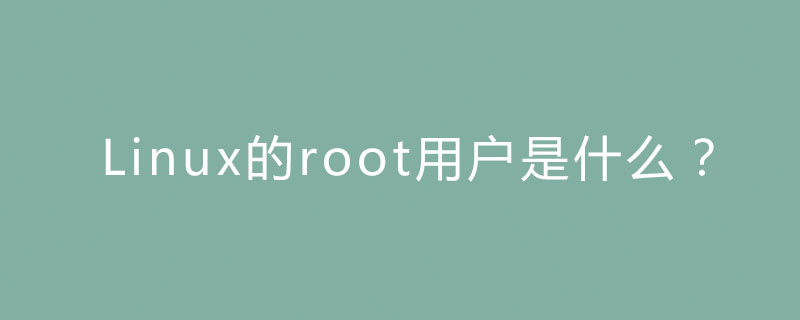Home >Operation and Maintenance >Linux Operation and Maintenance >What is the root user in Linux?
What is the root user in Linux?
- 藏色散人Original
- 2019-05-17 19:02:5812099browse
Root exists in UNIX systems (such as AIX, BSD, etc.) and UNIX-like systems (such as Debian, Redhat, Ubuntu and other versions of Linux systems and Android systems). The super user is generally named root, which is equivalent to Windows systems. system user.

root is the only super user in the system and has all the permissions in the system, such as starting or stopping a process, deleting or adding users, adding or disabling hardware, etc.
The root user is the only super administrator in the system and has the same permissions as the operating system. Some applications that require root permissions, such as ad blocking, require root permissions. But the problem is that root is more powerful than the Windows system administrator and can delete most of the files in the entire system, causing the system to be completely destroyed and cannot be used again. Therefore, it is quite dangerous to perform improper operations with root. In mild cases, the computer may crash, and in severe cases, it may even prevent the computer from booting. Therefore, in Unix, Linux and Android, it is generally not recommended to use root unless it is really necessary. It is best to create a separate ordinary user for daily use.
Because of the high root authority, many hackers regard obtaining root authority as their highest goal, and even turn root into a verb, for example, I rooted the box. It means that I obtained the root user authority of this machine.
root@xs-hp:~# xs@xs-hp:~$
Note:
root xs //表示用户名,root为超级用户,xs为普通用户 @ //在 xs-hp //主机名 ~ //当前路径为家目录 #$ //权限标志位,前者代表root用户,后者为普通用户 sudo + command //使普通用户拥有root权限 sudo su - //切换到root用户
The above is the detailed content of What is the root user in Linux?. For more information, please follow other related articles on the PHP Chinese website!

